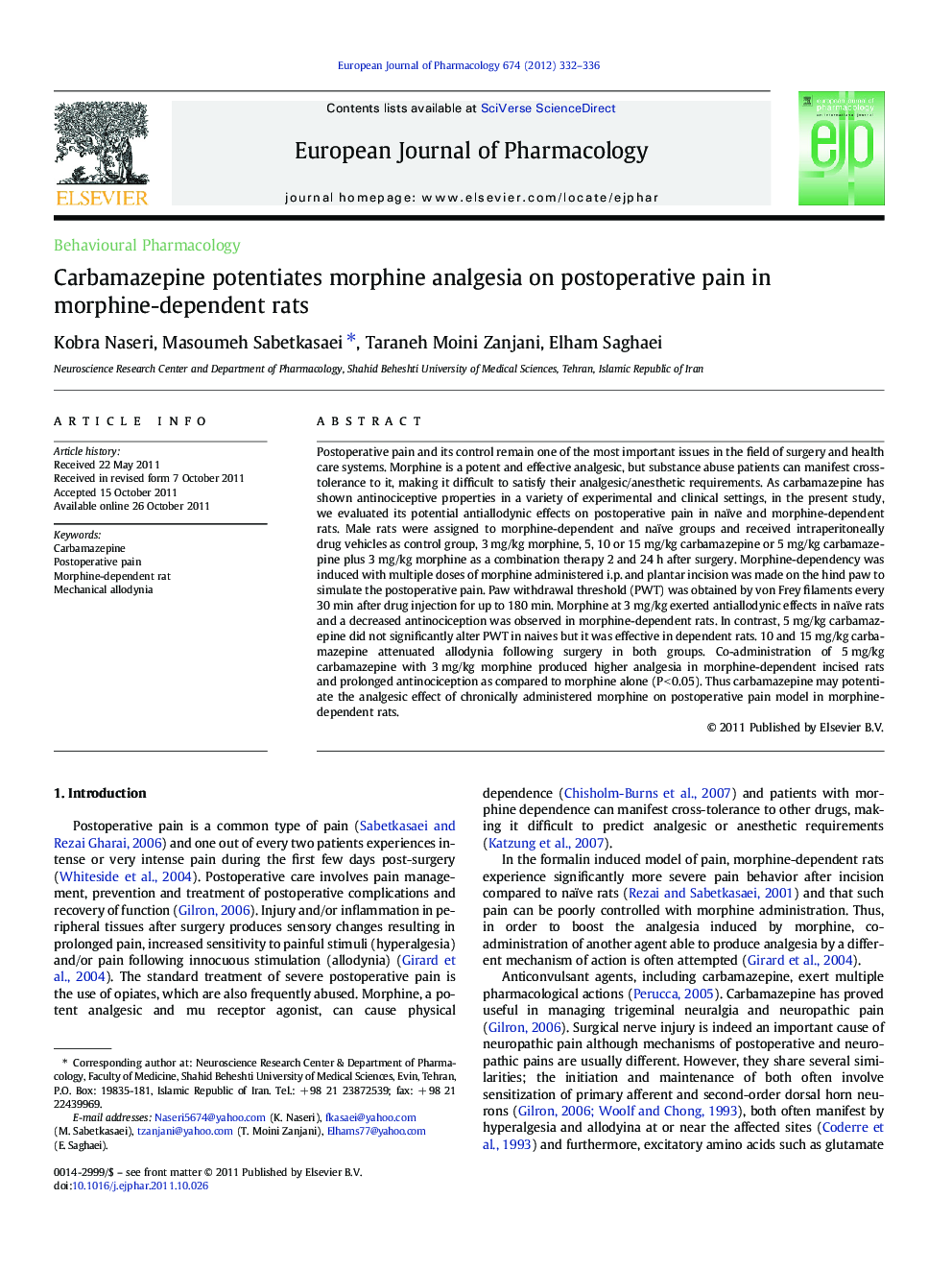| Article ID | Journal | Published Year | Pages | File Type |
|---|---|---|---|---|
| 5829876 | European Journal of Pharmacology | 2012 | 5 Pages |
Abstract
Postoperative pain and its control remain one of the most important issues in the field of surgery and health care systems. Morphine is a potent and effective analgesic, but substance abuse patients can manifest cross-tolerance to it, making it difficult to satisfy their analgesic/anesthetic requirements. As carbamazepine has shown antinociceptive properties in a variety of experimental and clinical settings, in the present study, we evaluated its potential antiallodynic effects on postoperative pain in naïve and morphine-dependent rats. Male rats were assigned to morphine-dependent and naïve groups and received intraperitoneally drug vehicles as control group, 3Â mg/kg morphine, 5, 10 or 15Â mg/kg carbamazepine or 5Â mg/kg carbamazepine plus 3Â mg/kg morphine as a combination therapy 2 and 24Â h after surgery. Morphine-dependency was induced with multiple doses of morphine administered i.p. and plantar incision was made on the hind paw to simulate the postoperative pain. Paw withdrawal threshold (PWT) was obtained by von Frey filaments every 30Â min after drug injection for up to 180Â min. Morphine at 3Â mg/kg exerted antiallodynic effects in naïve rats and a decreased antinociception was observed in morphine-dependent rats. In contrast, 5Â mg/kg carbamazepine did not significantly alter PWT in naives but it was effective in dependent rats. 10 and 15Â mg/kg carbamazepine attenuated allodynia following surgery in both groups. Co-administration of 5Â mg/kg carbamazepine with 3Â mg/kg morphine produced higher analgesia in morphine-dependent incised rats and prolonged antinociception as compared to morphine alone (PÂ <Â 0.05). Thus carbamazepine may potentiate the analgesic effect of chronically administered morphine on postoperative pain model in morphine-dependent rats.
Related Topics
Life Sciences
Neuroscience
Cellular and Molecular Neuroscience
Authors
Kobra Naseri, Masoumeh Sabetkasaei, Taraneh Moini Zanjani, Elham Saghaei,
